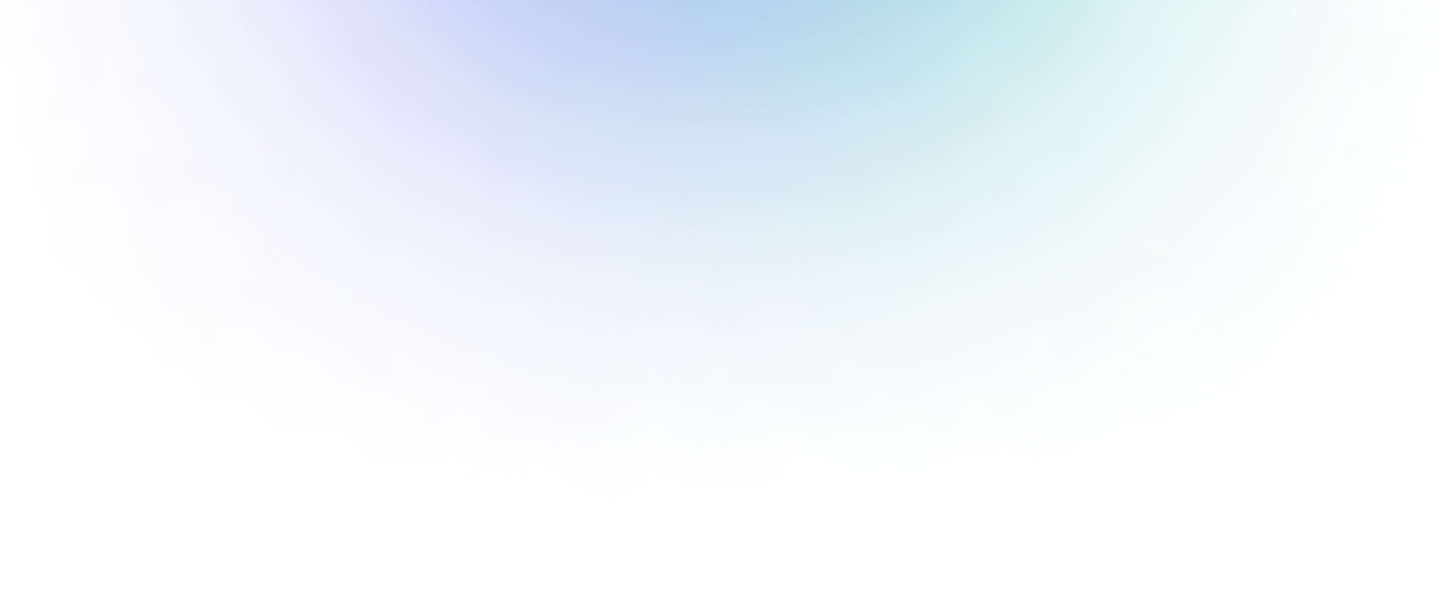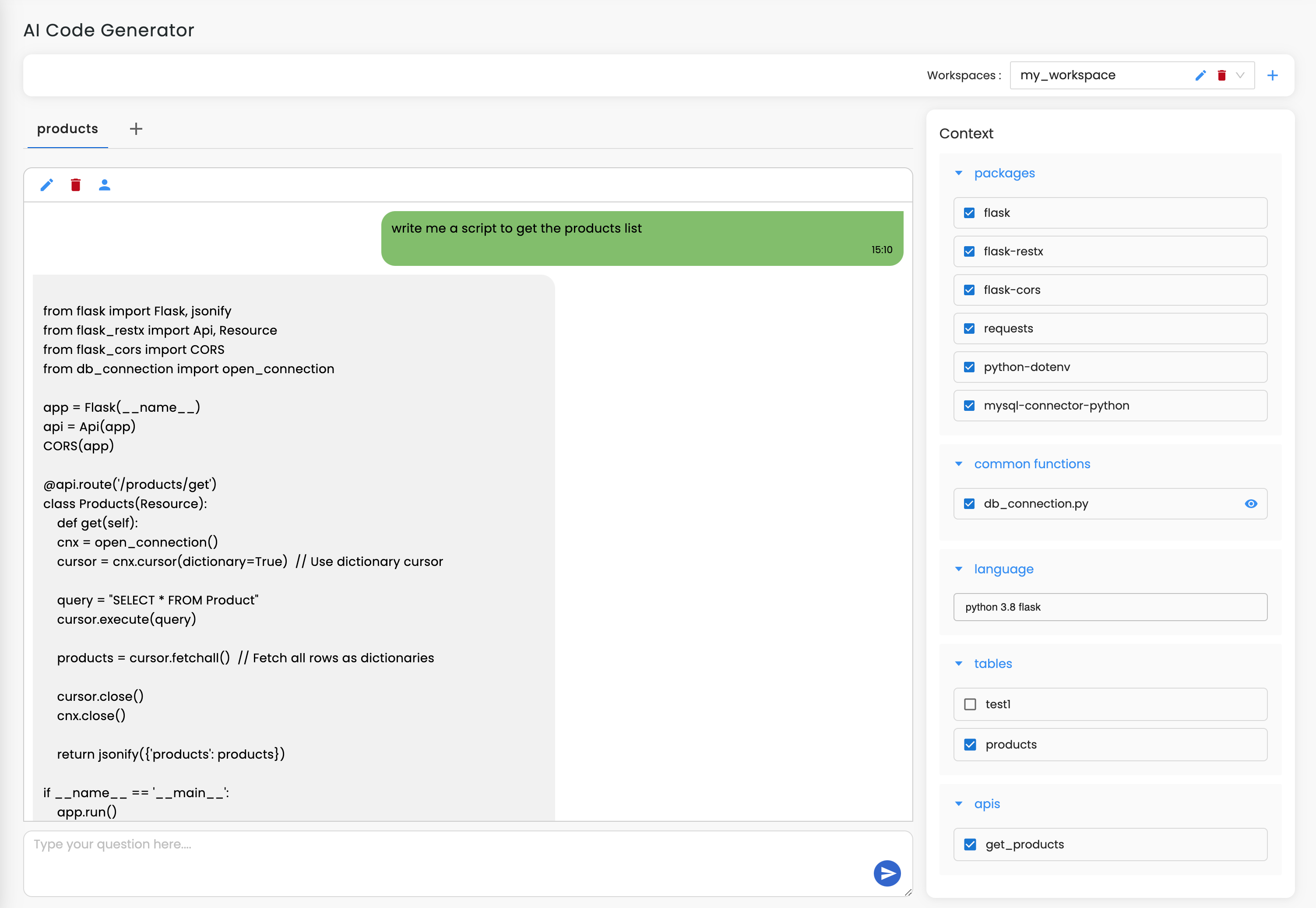
Join our community to see how developers are using Workik AI everyday.
Features

Build Async APIs
Generate APIs optimized for Uvicorn, handling concurrent requests for high-performance applications.

Automatic Data Validation
Use Pydantic for seamless data validation and serialization, ensuring data integrity with minimal code.

Database Integration
Connect PostgreSQL, MySQL, and MongoDB effortlessly. AI can generate models and queries.

Generate API Documentation
Create OpenAPI-compliant docs with AI using Swagger UI for instant testing and integration.
How it works
Sign up using your Google account or register manually to dive into FastAPI development instantly.
Link your GitHub, GitLab, or Bitbucket repositories to import your project. Define your FastAPI settings, specify dependencies, and set up environment variables for code generation.
Utilize AI to generate, complete, or refine your FastAPI code. Add routes, configure endpoints, and automate API tasks with precision and speed.
Invite team members to join your workspace and collaborate on developing and refining your FastAPI code.


Expand
.png)
.png)
Expand


Expand


Expand


Expand


Expand


Expand


TESTIMONIALS
Real Stories, Real Results with Workik
Workik AI made learning FastAPI easy! AI suggestions simplified complex concepts, helping me build efficient APIs.

Ava Chen
Junior Developer
Deploying FastAPI apps is a breeze with Workik. AI-assisted workflows streamlined everything from code to deployment!

Sophia Shah
DevOps Engineer
Workik AI saved hours on complex routing and Pydantic models, revolutionizing my FastAPI projects.

Javier Ruiz
Senior Backend Developer
What are some popular use cases of Workik’s FastAPI code generator for developers?


Popular use cases of Workik’s AI-powered FastAPI Code Generator for developers include, but are not limited to:
* Generate CRUD operations for SQL and NoSQL databases effortlessly.
* Set up user authentication using JWT or OAuth2 without manual coding.
* Create asynchronous background tasks, such as email notifications or data processing.
* Validate request bodies with Pydantic models and error handling.
* Generate and maintain OpenAPI-compliant API documentation seamlessly.
* Manage multiple API versions in production with ease.
What context-setting options are available in Workik AI FastAPI Code Generator?


Workik AI offers diverse context-setting options to personalize AI output for FastAPI development. Users can:
* Sync projects with repositories like GitHub, GitLab, or Bitbucket.
* Define frameworks and tools like SQLAlchemy, Tortoise-ORM, or Redis.
* Specify optimization goals such as async handling or caching mechanisms.
* Add API specifications via Swagger/Postman or database schemas.
* Set deployment preferences for cloud platforms like AWS, Heroku, or Google Cloud.
How does Workik AI support migration projects?


Workik AI simplifies migration from frameworks like Flask or Django to FastAPI by converting routing, validation, and async handling. For example, Django ORM models and views are seamlessly translated into Pydantic models and FastAPI async endpoints.
How does Workik AI handle complex asynchronous operations in FastAPI applications?


Workik AI can generate optimized async code to handle high-concurrency tasks. It simplifies event loops, asyncio tasks, and database operations to ensure peak performance for FastAPI applications.
How does Workik’s automation assist in debugging FastAPI projects?


Automation pipelines test and debug FastAPI applications. Trigger bots analyze routes post-commit, run tests after deployment, and deliver AI-driven performance insights directly to Slack or GitHub.
How does Workik AI assist with scaling FastAPI applications?


Workik AI optimizes FastAPI code for scalability by suggesting efficient database queries, async handling, and caching strategies. It also supports load testing and performance tuning to prepare your app for high traffic.
Can Workik AI help integrate third-party services into FastAPI projects?


Absolutely! Workik AI simplifies integration with Stripe, Twilio, or Firebase by generating ready-to-use endpoints and middleware, reducing setup time and ensuring seamless functionality.
Generate Code For Free

FastAPI: Question and Answer
FastAPI is a modern, fast (high-performance), web framework for building APIs with Python 3.6+ based on standard Python type hints. It enables developers to create RESTful APIs quickly and efficiently. FastAPI leverages asynchronous programming, automatic generation of OpenAPI and JSON Schema documentation, and type validation, making it an ideal choice for building scalable and maintainable web applications and services.
Popular frameworks and libraries:
Web Framework: Starlette
Data Validation: Pydantic
Testing Tools: Pytest, HTTPX, Postman
Authentication: OAuth2, JWT, Authlib
Database Integration: SQLAlchemy, Tortoise-ORM, Alembic
Deployment Tools: Uvicorn, Gunicorn, Docker
Career opportunities and technical roles for professionals skilled in FastAPI development include Backend Developer, Full-Stack Developer, API Developer, Machine Learning Engineer, DevOps Engineer, and more.
Workik AI provides extensive assistance for FastAPI projects, including:
API Design:
Assists in designing FastAPIs with proper endpoint structuring and HTTP methods.
Documentation:
Generates comprehensive API documentation.
Code Generation:
Produces server-side code for developing FastAPI applications.
Testing:
Assists in testing FastAPI endpoints to ensure they are reliable and performant.
Security:
Offers best practices for implementing authentication, authorization, and data encryption in FastAPI.
Monitoring:
Helps set up monitoring and logging to track API usage, performance, and errors.
Explore more on Workik
Get in touch
Don't miss any updates of our product.
© Workik Inc. 2026 All rights reserved.

